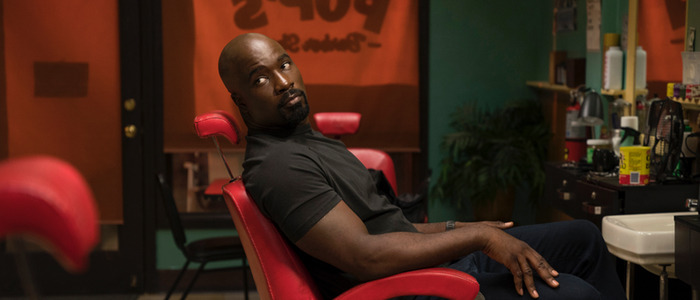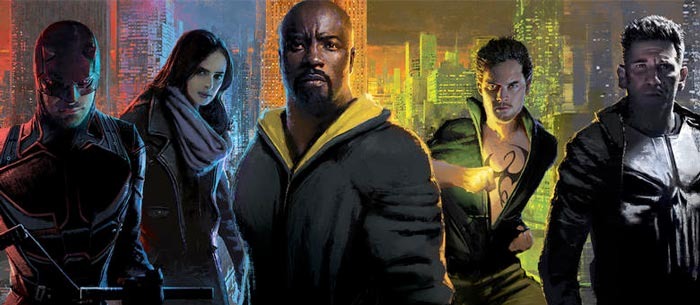'Luke Cage' Star Mike Colter Reflects On The Show's Cancelation: "There Were So Many Places We Could Have Taken It"
It's really difficult to remember a time before we all subscribed to 100 different streaming services, but let's try to flash back a bit. About a million years ago (back in 2015) when Netflix ruled the streaming space, they began a partnership with Marvel to produce several interconnected series that built up to Marvel's Defenders. The first three, Daredevil, Jessica Jones, and Luke Cage, were welcomed with open arms and debuted to massive hype and success. Though Netflix famously doesn't release viewership details, these shows were stripped down, action-packed fun, until their abrupt successive cancelations in 2019. And so went the end of an era.
Six years later, Marvel has a new home for its MCU series on Disney+ where its new trio of shows WandaVision, The Falcon and the Winter Soldier, and Loki will be followed by many more giant, universe-altering series. And back on Netflix, the street-level heroes remain, all cut off before fully concluding. Many fans were disappointed to learn that the shows would not continue their stories, either on Netflix or the newer Disney streaming service. And it turns out that disappointment is shared by those in front of the camera, too.
In a recent interview with Collider, while promoting his CBS show Evil, Luke Cage star Mike Colter expressed his frustrations about the early cancelation. Talking about the show potential, Colter said:
There were so many places we could have taken it. There's obviously the Alias series where Jessica and Luke had a child and had this adult life they were trying to live, and there's this moment where they are working out their blue collar, making ends meet life together, which is very interesting. There's the journey that Luke had in his own series with Harlem's Paradise, where he's taken over the club, and is he gonna be a bad guy or a guy that is on the other side of the law, and who's gonna stop him. That was another interesting thing to watch, with him maybe being a little gangster, and that would've been cool too.
Where We Left Luke Cage
Where the series ended, Luke was eyeing a new beginning. Still struggling to figure out the best way to defend his home in Harlem, and protect those in the community, he decides to explore a gray area. He resolves to protect Harlem outside of the law, which Colter notes left a ton of possibilities open.
It was an unexpected ending and never meant to be the series finale. At the time, season 3 was still in the cards: the writer's room was staffed and ready, before being put on hold in October 2018. A week later, the show was canceled.
At the very least, this wasn't the last we saw of the bulletproof Power Man. He made a special appearance in the final season of Jessica Jones. But Colter affirms that this was not enough to end things neatly.
I don't think there's any closure to it, nor do I feel like we were able to get any of that closure by having the appearance in Jessica Jones, but it is what it is. It's one of those things where we'll just never know.
The New Normal
The situation is bittersweet. The Netflix Marvel series was tragically axed before their time, just after the heroes came together in The Defenders. On one hand, Marvel has since made its universe larger and much more interesting with the Disney+ series. In those, they have room for the kind of freeform exploration that isn't always embraced in the MCU movies. In WandaVision, we spend time with second-tier Avengers Wanda Maximoff and Vision in a trippy, decade-jumping sitcom format. In The Falcon and The Winter Soldier, we slowed things down with Sam Wilson and Bucky Barnes. Loki is currently giving us charming, atmospheric Doctor Who-esque fun. And as different as they are, these shows have their massive scale in common.
At their best, the Netflix Marvel heroes were on the streets — returning children to their mothers and saving people away from the violence of New York gangs and small-time villains. Their stories were personal and deeply rooted in place. They lived in their specificity, acquainting us with neighborhoods like Hell's Kitchen and Harlem, then building them out for our heroes to save. It's hard not to miss their intimacy. Colter put it best by saying:
It's like a relationship or anything else that never reached its peak or it's descent. You don't have any negative memories of it because it will live in this place of perfection, or some sense of promise, at all times in our life. It's a fond, romanticized notion of what could have been.


